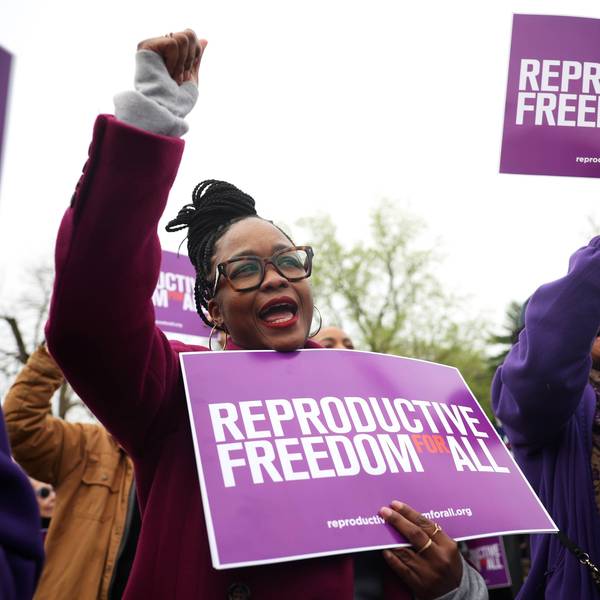A recent study found that maternal death rates in Texas were the highest in the United states, and among the worst in the developed world, with the number of such deaths doubling from 2010 to 2012.
But Texas lawmakers--who devoted time to a slew of anti-LGBTQ bills--were apparently unmoved by that startling trend, choosing to close out their legislative session with some drama but no "significant action to address" the problem, as the Associated Press reported Sunday.
Now, the issue of women who die from complications related to childbirth may not be addressed until 2019.
One failed effort, legislation introduced by Republican state Sen. Lois Kolkhorst, would have extended a state maternal mortality task force's timeline, pushing its end date from 2019 to 2023. That task force, established in 2013, issued a report last year showing that African-American women were disproportionately affected by pregnancy-related deaths; though they make up 11 percent of all births in Texas, they constituted 29 percent of maternal deaths.
State Rep. Shawn Thierry had legislation to look into that trend, but AP reports that effort "died along with a parade of other proposals after tea party-backed lawmakers, protesting a lack of movement of their own pet issues, used a House procedural maneuver to kill every bill on a legislative calendar that wasn't supposed to generate debate."
Another effort that would have extended Medicaid coverage for a longer period after women give birth also failed, AP noted.
Lawmakers, however, did find time to pass SB 8, a sweeping anti-abortion bill.
Once signed by Gov. Greg Abbott, the new law will "force reproductive healthcare providers to bury or cremate fetal tissue regardless of the patient's wishes or beliefs, ban a safe and medically-proven abortion method, and prevent patients from donating fetal tissue for use in medical research," writes Amanda Williams, the executive director of Lilith Fund, and Alexa Garcia-Ditta, communications and policy Initiatives director at NARAL Pro-Choice Texas.
Its passage, they continue, shows that Texas lawmakers "seem emboldened to ramp up their extreme agenda to shame, bully, and punish Texans for our reproductive decisions."
There's still a possibility that the governor will call state lawmakers back to Austin for a special session, where a so-called "bathroom bill" would likely be on the docket. A decision is expected in the coming days.
Abbott recently declared, in the context of an anti-LGBTQ bill, "We want to do all we can to help women have privacy, safety, and security to the fullest extent possible." The closure of the legislative sessions left the clear impression that women's health, safety, and security are clearly not legislative priorities.



